Publications
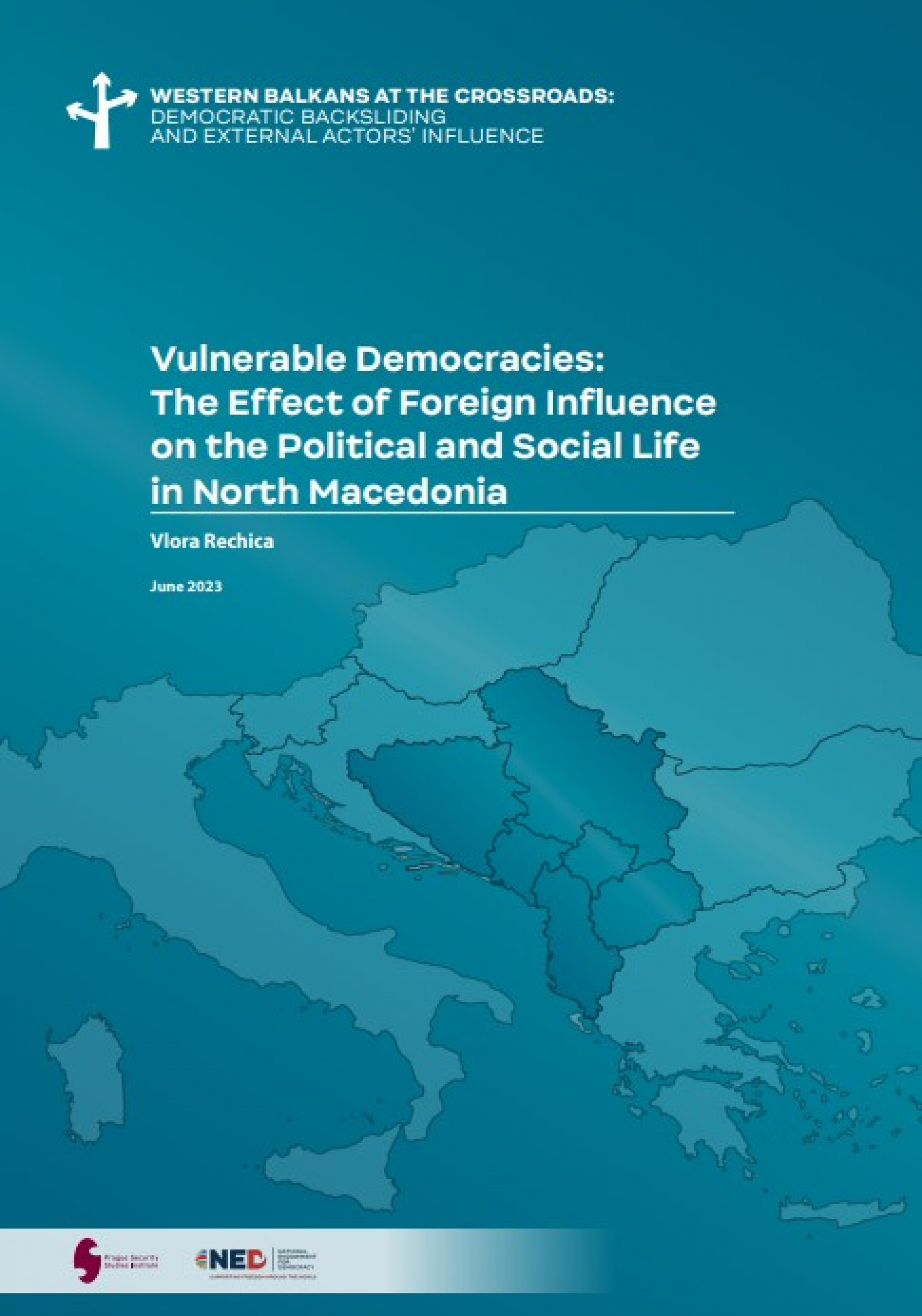
Information Resilience Program // Vlora Rechica / 6 Jun 2023
Vulnerable Democracies: The Effect of Foreign Influence on the Political and Social Life in North Macedonia
This study analyses the effects of foreign influence on political and social life in North Macedonia, focusing on the impact of the prolonged EU integration process, as opposed to the influence excreted by non-western actors, particularly Russia, China, Türkiye, and the Arab states of the Persian Gulf.
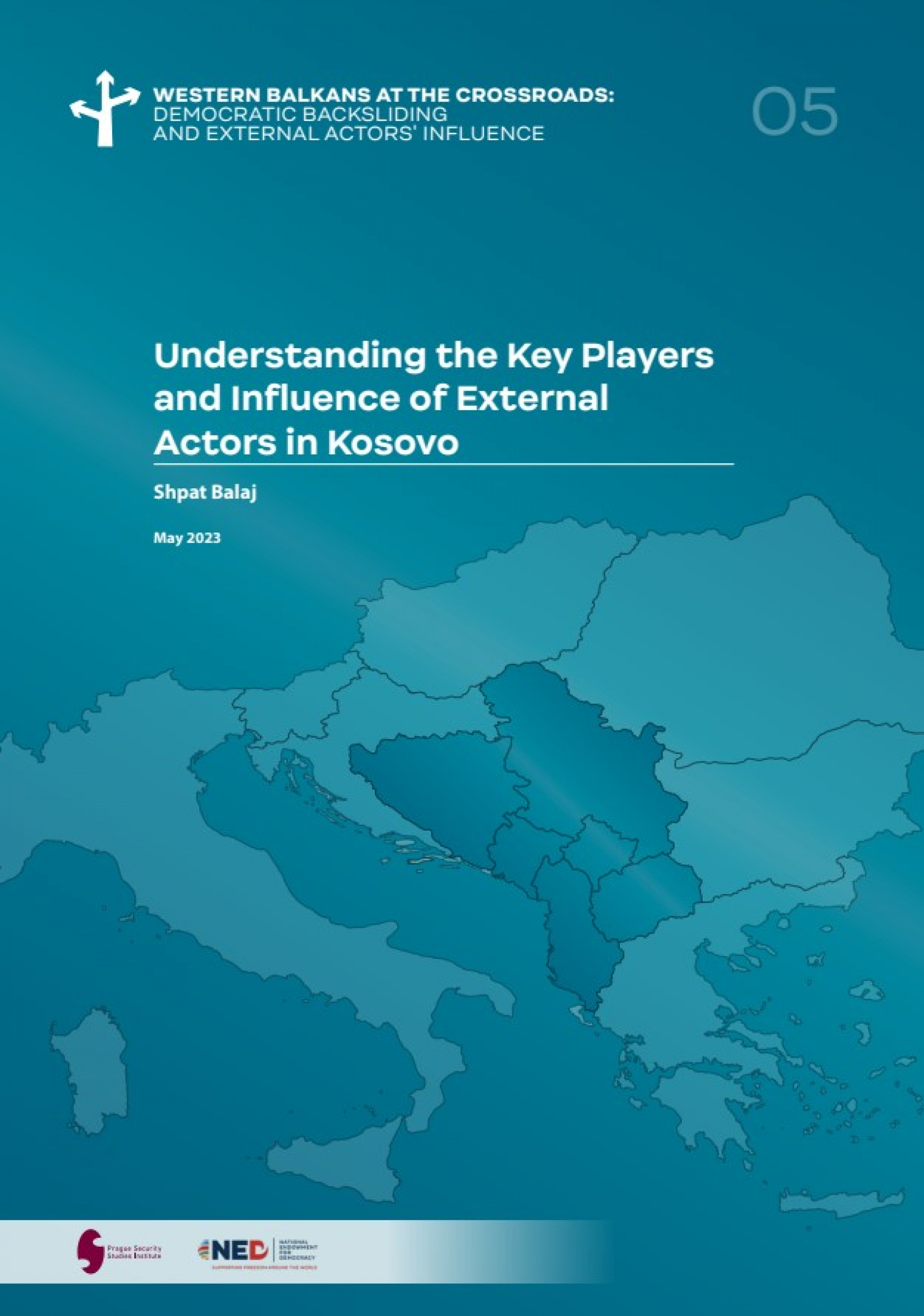
Information Resilience Program // Shpat Balaj / 2 Jun 2023
Understanding the Key Players and Influence of External Actors in Kosovo
This study analyses the external influence in Kosovo and how these influences manifest in the political, economic, and social realms. The report contends that the historical context in which Kosovo emerged as a state has determined how external influence is perceived in the country.
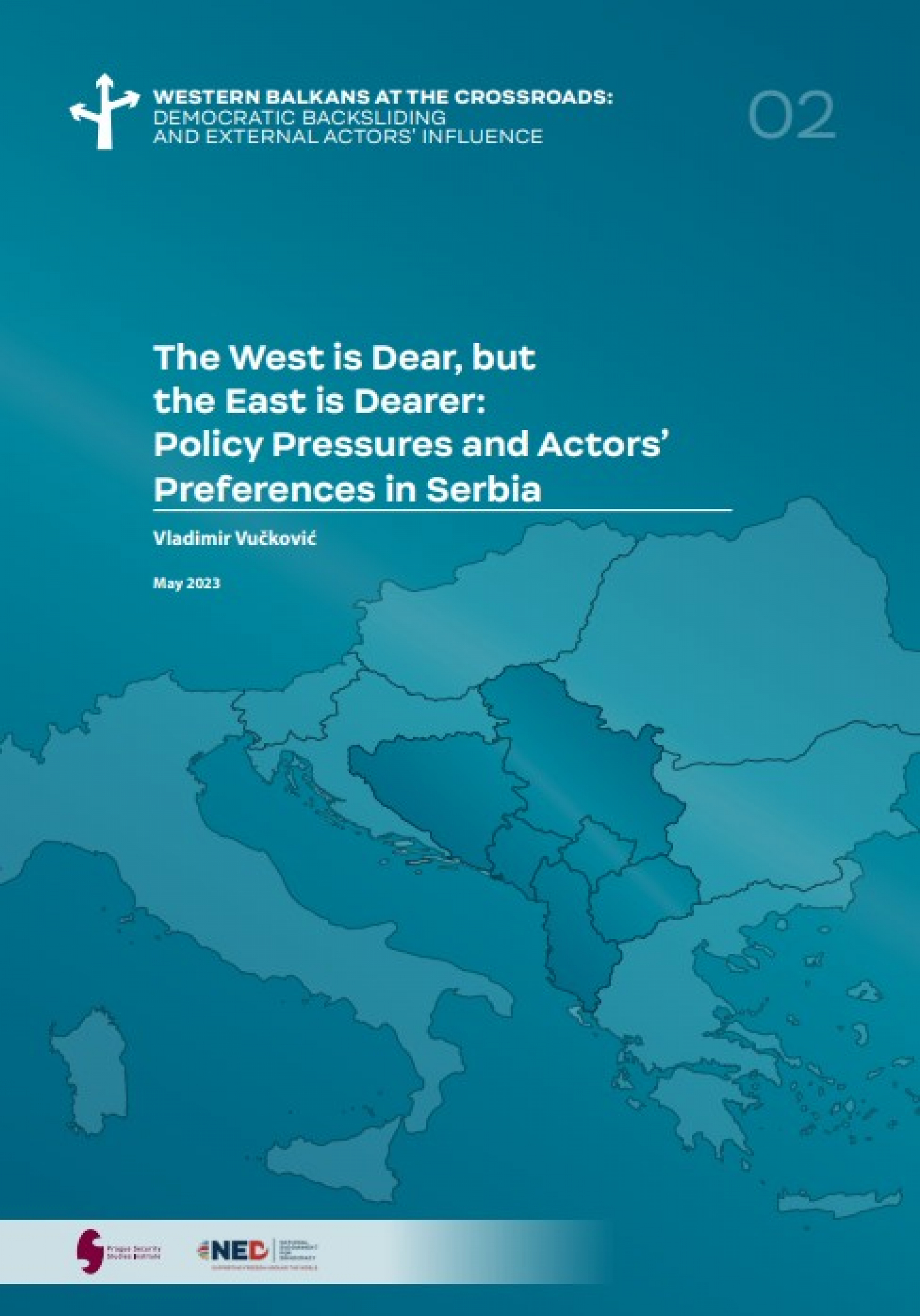
Information Resilience Program // Vladimir Vučković / 30 May 2023
The West is Dear, but the East is Dearer: Policy Pressures and Actors’ Preferences in Serbia
This policy paper investigates the influence of Russia, China, Turkey, and the Arab states of the Persian Gulf on the process of (in)stability, including democratization, in Serbia from 2008 to 2022.
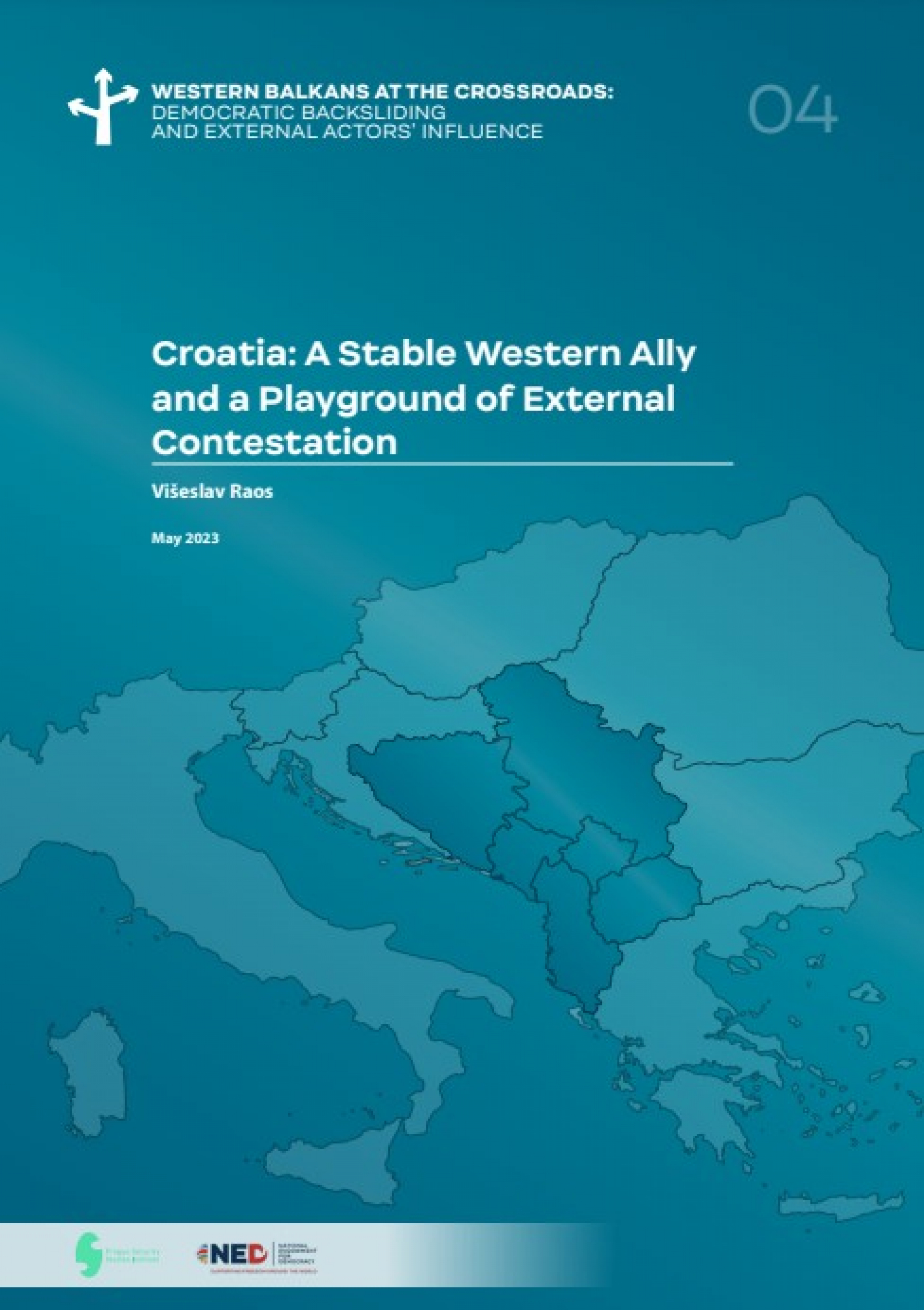
Information Resilience Program // Višeslav Raos / 24 May 2023
Croatia: A Stable Western Ally and a Playground of External Contestation
Croatia is a committed member of the EU and NATO and a stable ally of the United States in the region. Yet, it has been experiencing illiberal tendencies since becoming an EU member, marked by widespread corruption and a weakening of independent institutions which should control the executive.
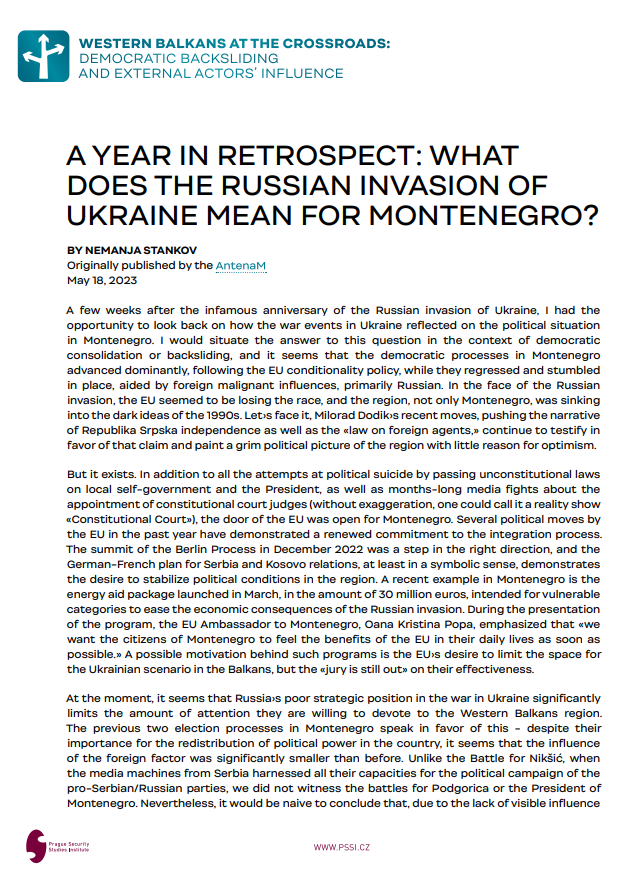
Information Resilience Program // Nemanja Stankov / 19 May 2023
A Year in Retrospect: What does the Russian invasion of Ukraine mean for Montenegro?
As we reflect on the aftermath of the Russian invasion of Ukraine, its effects on Montenegro's political landscape are evident. Democratic backsliding seems to have advanced even with the EU’s continuous support of Montenegro's integration process. As Montenegro treads its path, balancing influences from East and West, it faces critical decisions for its future.
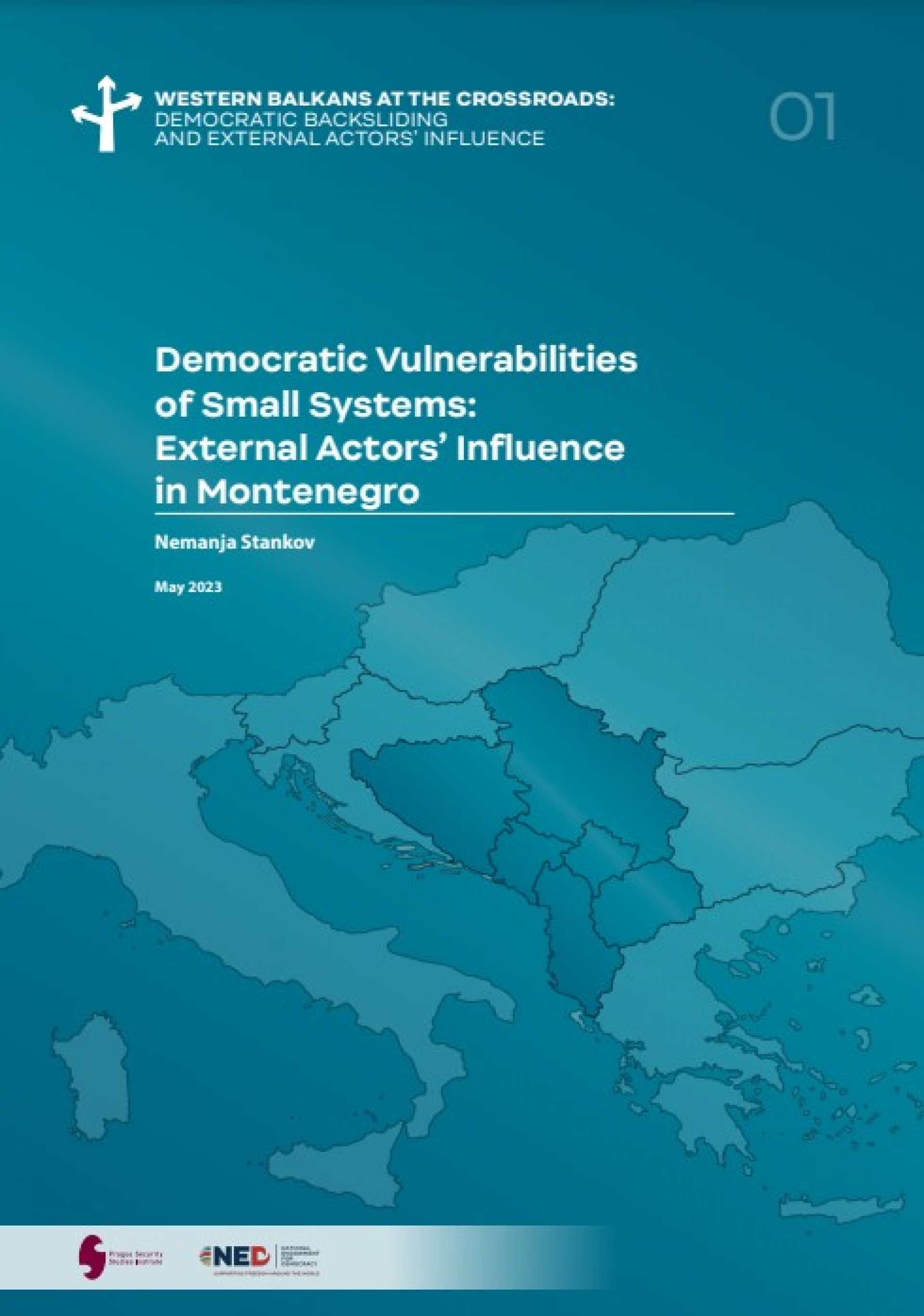
Information Resilience Program // Nemanja Stankov / 16 May 2023
Democratic Vulnerabilities of Small Systems: External Actors’ Influence in Montenegro
The PSSI's Western Balkans Project is delighted to publish the first analytical study under the project titled "The Western Balkans at the Crossroads: Democratic Backsliding and External Actors' Influence." The study examines democratic backsliding in Montenegro and the influences of external actors. It seeks to answer the following question: What is the role of non-European external actors in causing democratic backsliding in Montenegro?
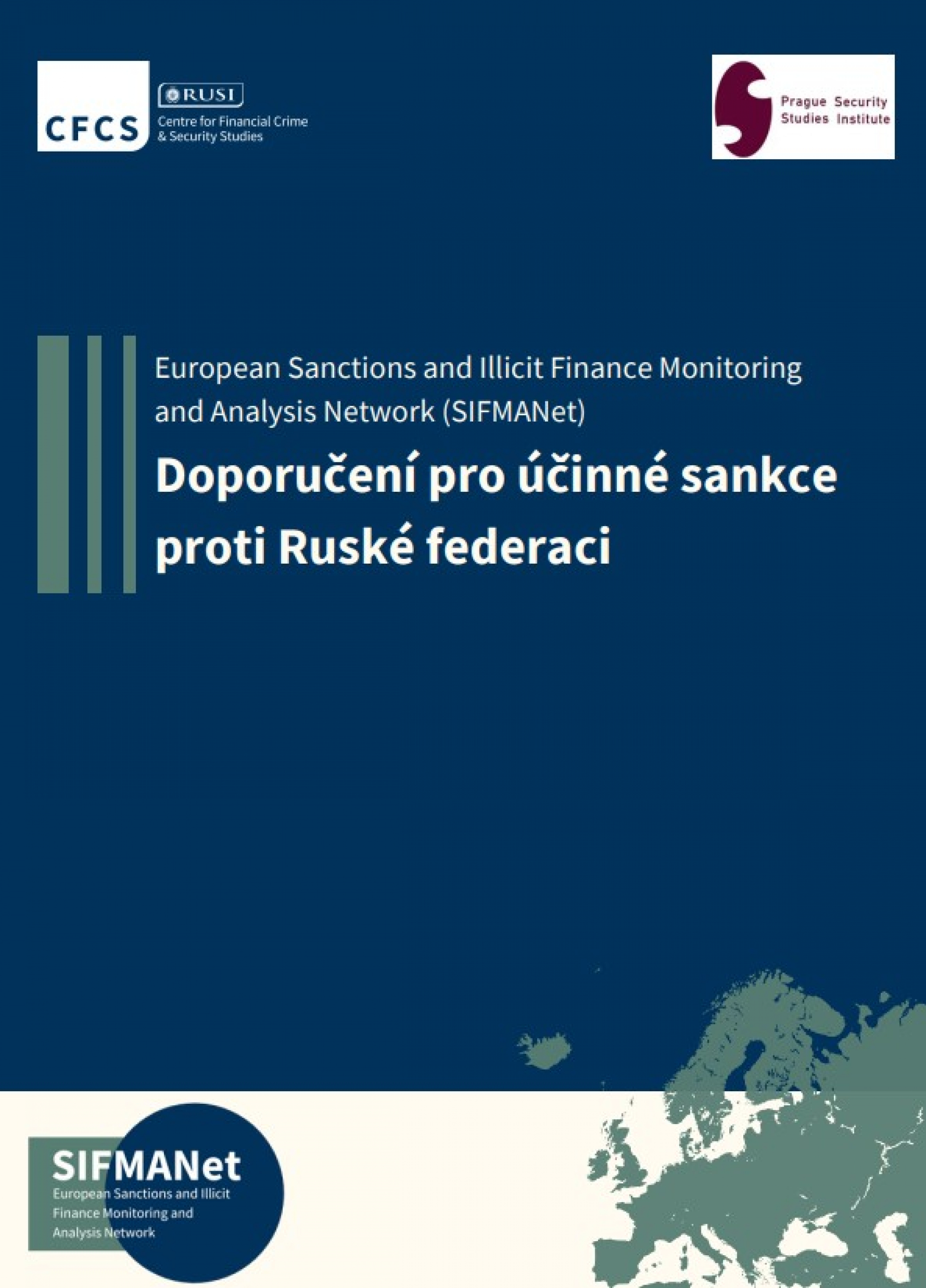
Economic & Financial Statecraft Program // RUSI/PSSI / 12 May 2023
Doporučení pro účinné sankce proti Ruské federaci
Od února 2022 Evropská unie úspěšně zavedla deset balíčků sankcí proti Ruské federaci s cílem omezit financování a zajišťování zdrojů pro její vojenské kapacity. Pro zajištění účinného sankčního režimu je zásadní vyhodnocovat výsledky, kterých členské státy dosáhly při provádění těchto sankcí, aby byl dosažen jejich maximální dopad. S tímto účelem byla založena síť organizací pro analýzu a monitorování evropských sankcí a nezákonného financování SIFMANet, ktorou súčasťou je aj Prague Security Studies Institute.
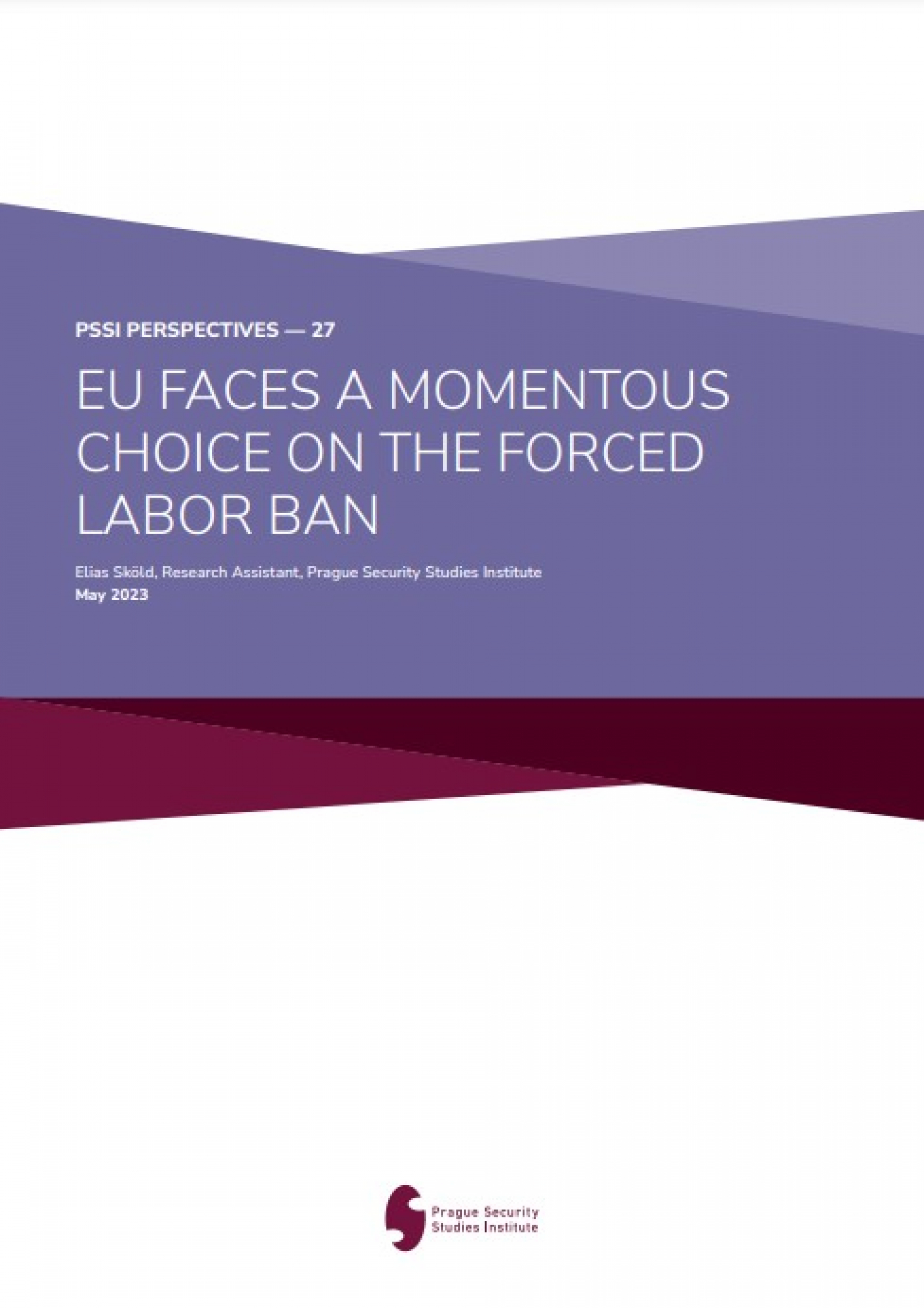
Economic & Financial Statecraft Program // Elias Sköld / 9 May 2023
PSSI Perspective #27: EU Faces a Momentous Choice on the Forced Labor Ban
Prague Security Studies Institute welcomes the EU's proposal to ban products associated with forced labor practices but believes the range should be significantly expanded. The Institute advocates for including products and companies from offending nations, specifically China, and calls for a complete ban on corporate offenders from entering or conducting business with EU countries. Additionally, PSSI emphasizes the need to prevent publicly traded companies linked to forced labor from trading securities or raising funds in European capital markets.
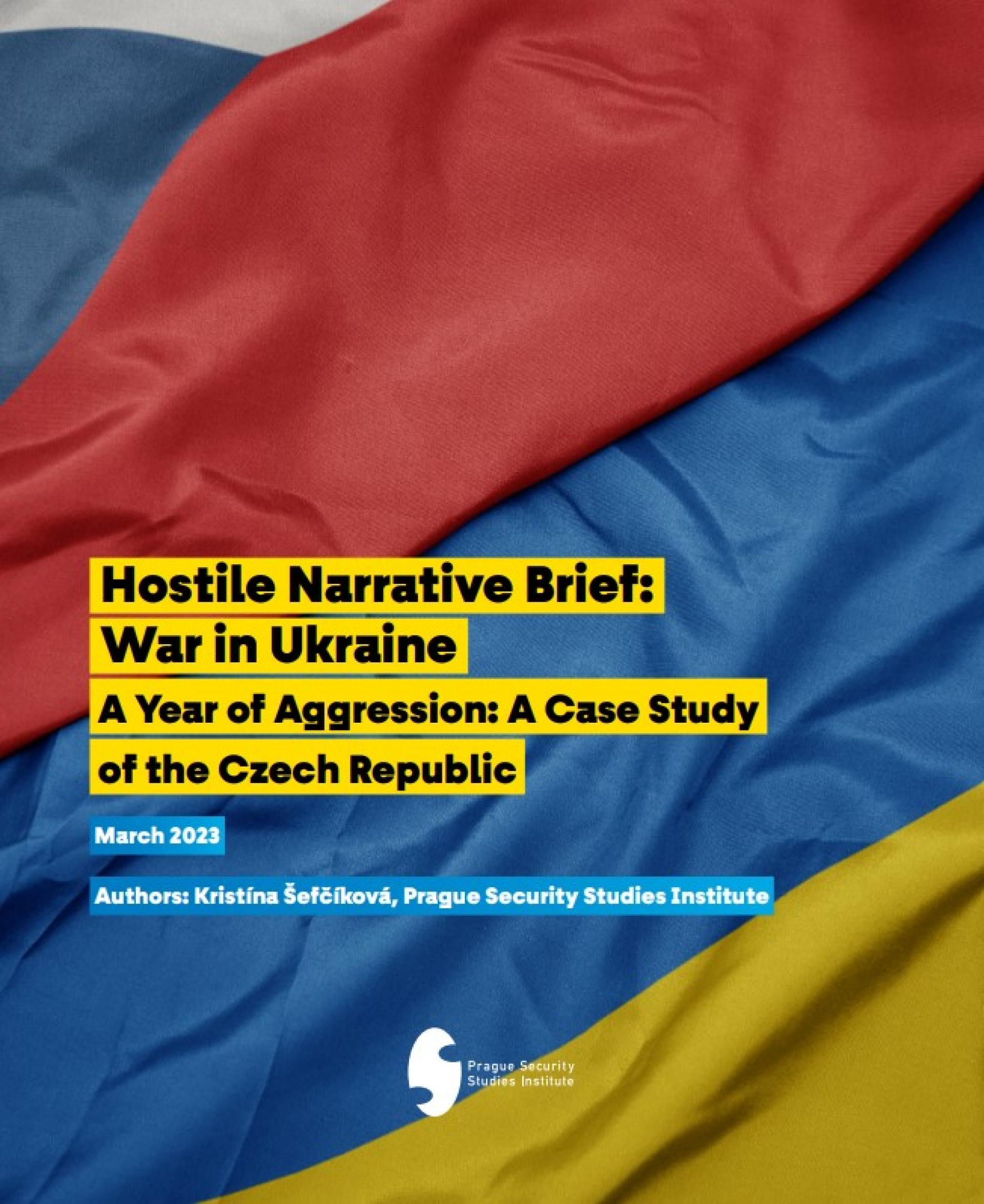
Information Resilience Program // Kristína Šefčíková / 19 Apr 2023
Hostile Narrative Brief: War in Ukraine A Year of Aggression: A Case Study of the Czech Republic
February 24, 2023 marked one year since the start of the unprovoked full-scale invasion of Ukraine by the Russian Federation. These events have been accompanied by attempts to undermine support among Ukraine’s allies by spreading disinformation, conspiracy theories and generally, hostile narratives towards Ukraine exploiting socially contentious issues. To better track these hostile narratives, the Prague Security Studies Institute researchers joined the International Republican Institute’s Beacon Project in their series of reports monitoring the online media space of the Czech Republic, among other Central and Eastern European (CEE) countries.
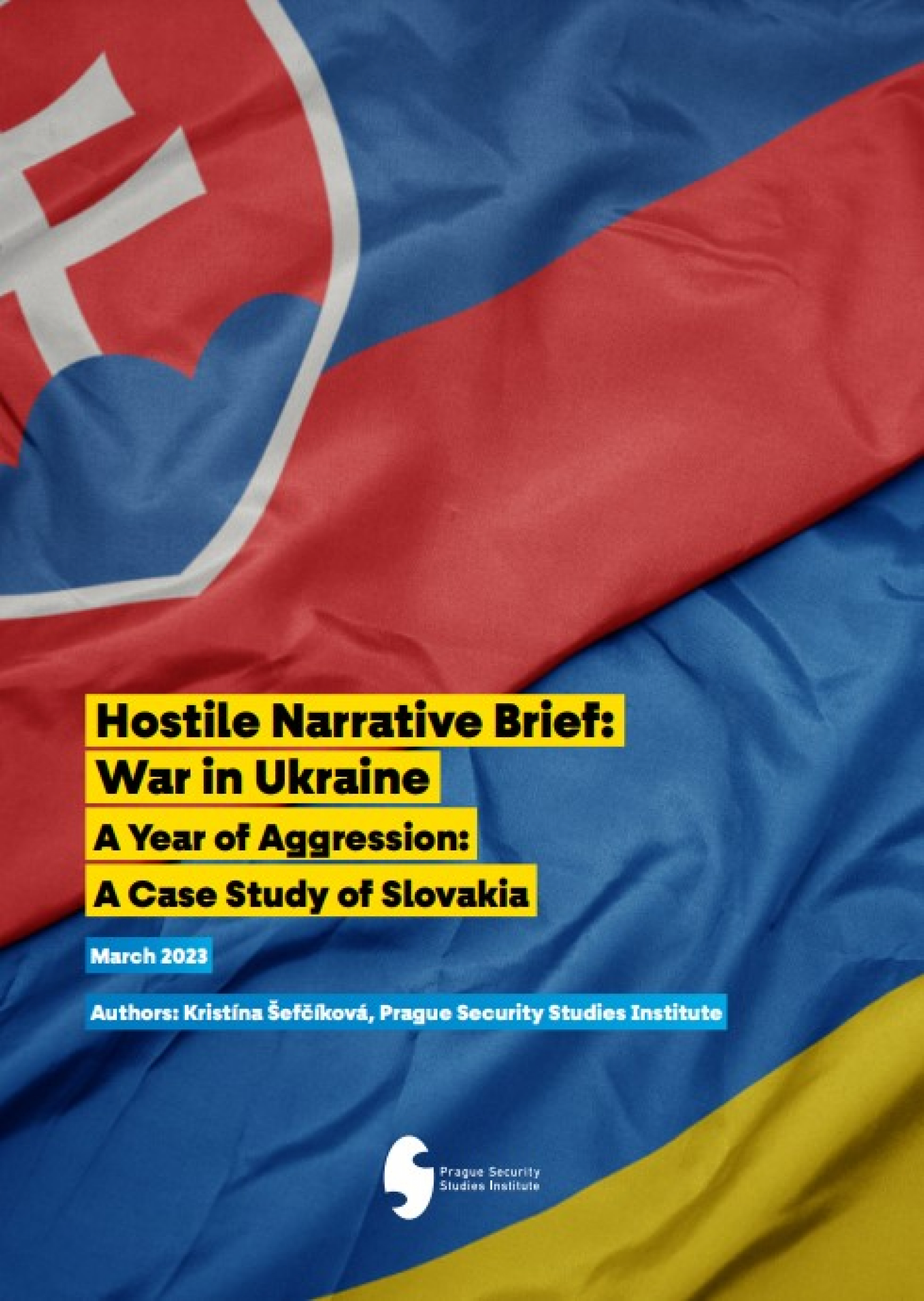
Information Resilience Program // Kristína Šefčíková / 19 Apr 2023
Hostile Narrative Brief: War in Ukraine A Year of Aggression: A Case Study of Slovakia
February 24, 2023 marked one year since the start of the unprovoked full-scale invasion of Ukraine by the Russian Federation. These events have been accompanied by attempts to undermine support among Ukraine’s allies by spreading disinformation, conspiracy theories and generally, hostile narratives towards Ukraine exploiting socially contentious issues. To better track these hostile narratives, the Prague Security Studies Institute researchers joined the International Republican Institute’s Beacon Project in their series of reports monitoring the online media space of Slovakia, among other Central and Eastern European (CEE) countries.